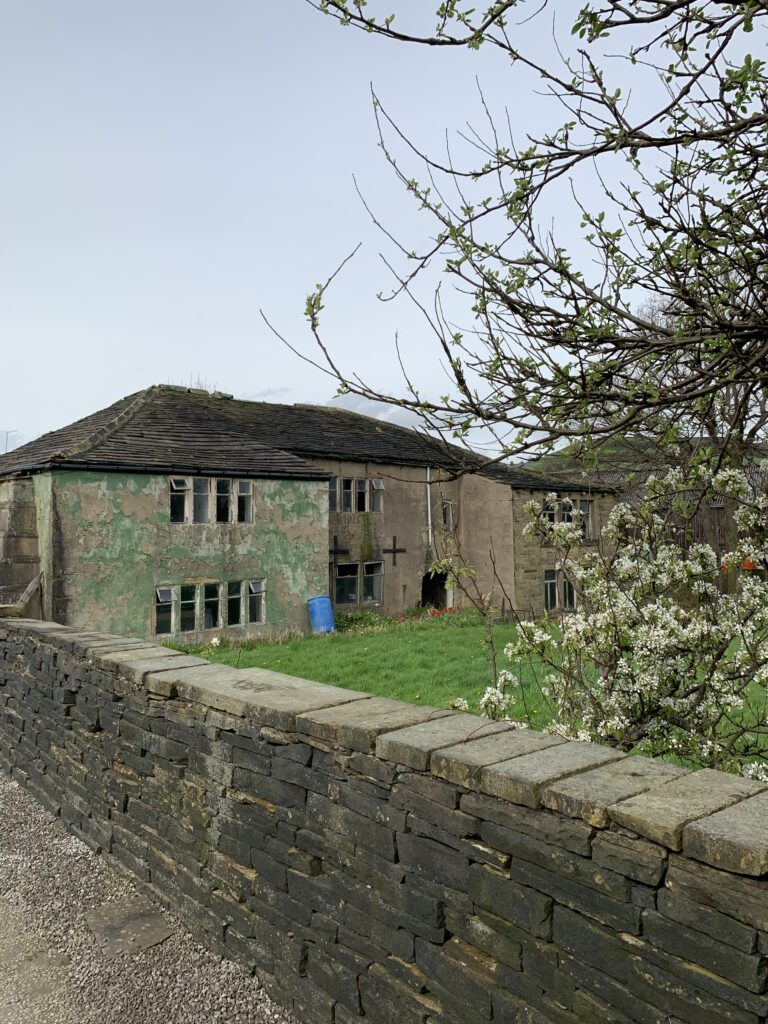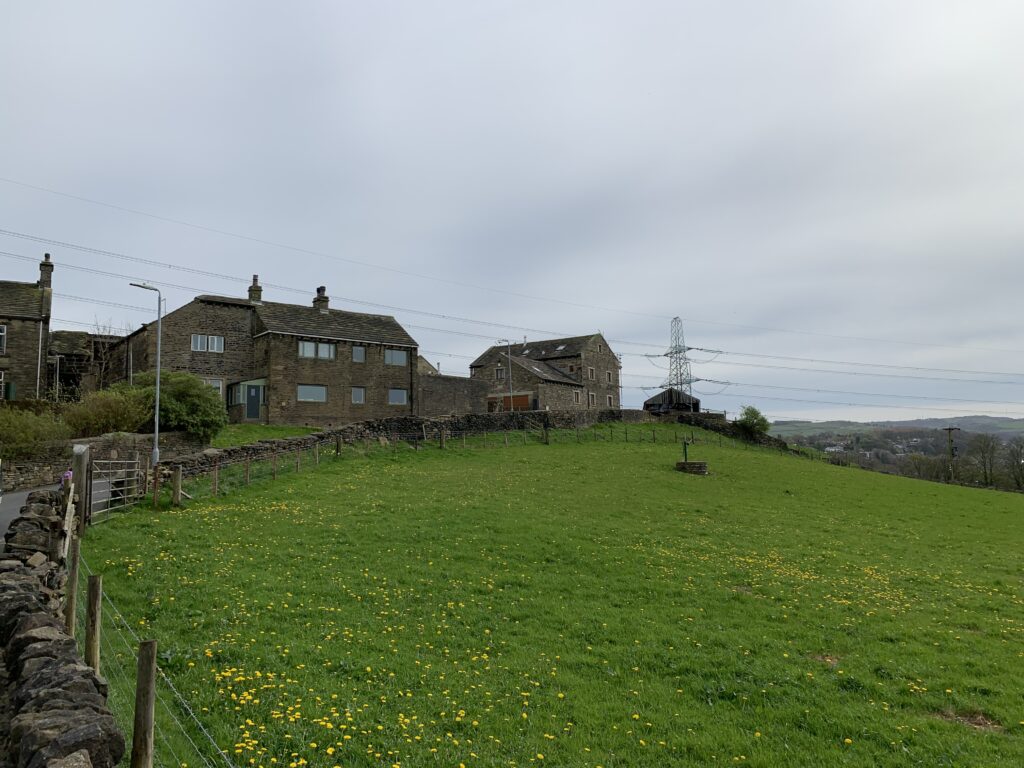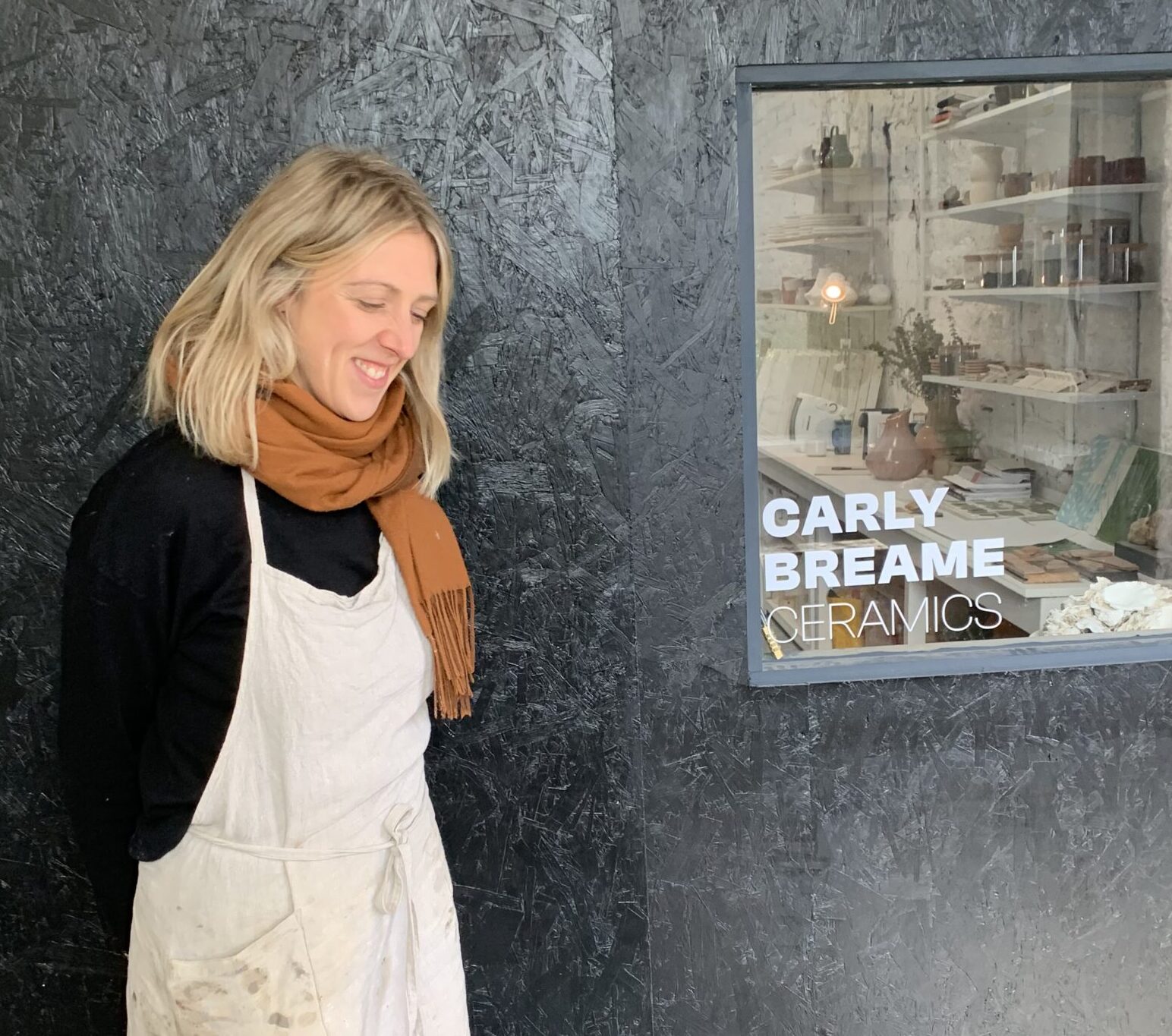When I first came up with the idea to do The Yorkshire Local blog off the back of my Yorkshire Postie Instagram account, all I knew is I wanted to interview people and businesses from my local area, to showcase the talent and hard work of the people of Halifax, Calderdale, and eventually further down the line of Yorkshire as a whole.
So it is quite fitting that for my first interview, I am just up the road around the corner from where I live, at Upper Exley Hall farm. I have lived on the road of Exley Lane my whole life and this is the first time I have had a proper look at the farm and to have the chance to chat to Eddy Lumb whose family have had the farm since 1898 on all things farming and Yorkshire. I’m sure will be a very insightful read for you all.

Q1. So Eddy, my first question to you. What would your daily routine usually be? How does it start and how does it finish?
My routine varies with the seasons. In winter, I work from 8-6, but I’m flexible if needed. Becoming a dad has made early starts more common, especially for nursery runs. My day can involve anything from sweeping the yard to hay making, welding, or dealing with sick animals. I enjoy my firewood business, which supports the farm financially, and I also sell hay. Managing 80 acres here, plus renting additional land, keeps me busy. Despite long days, I love being my own boss.
Q2. What are your earliest memories of farming and being on the farm?
My earliest farming memories are of a bustling, happy place. When I was a kid in the 1980s, the farm was a mixed operation with hens, pigs, and crops. There were always local lads helping out, and it was a vibrant community. Now, it’s quieter, but those memories of a lively farm with music and camaraderie stay with me.
Q3. How long has your farm been in the family? And just how old is the farm itself?
The farm has been in my family since 1898, bought by my great-grandad. The farm itself is ancient, with Exley Hall’s oldest part dating back to 1540, even pre-dating the Norman Conquest. My family has been here for generations, and though much has changed, I’m proud of our history.
Q4. What animals do you have and how many? What are they reared for and do you provide any other services?
I mainly have cattle, bred for meat. I used to have a more diverse farm with poultry, pigs, and crops, but now it’s just grass and cattle. I also sell hay and firewood. Over the years, we’ve downsized and focused more on manageable ventures. Currently, I’m planning to buy calves to raise for beef, and I have friends who bring their animals to graze here.
Q5. What significant changes have you seen in your career as a farmer, positive and/or negative?
Most changes have been negative, shifting from mixed farming to monoculture. The farm used to be more diverse, but now it’s mostly grass and cattle. Modern farming has become more about efficiency and less about community. Although prices for livestock have improved, many traditional farming practices and small farms have declined.
Q6. Would you say that there is a lot more the government in the UK could be doing to help farmers or a lot less, to give farmers more free reign on their own affairs or otherwise?
Yes, the government could help more. Prices for livestock have improved, but I worry about reliance on subsidies and market changes. Many farmers struggle without consistent support, and legislation often hampers rather than helps. The focus on large-scale farming over small, diverse operations is problematic.
Q7. Looking at the swaths of protests by farmers that have taken over Europe over the last few years for a variety of reasons, from restrictions on water usage in Spain to pesticide usage in France, to name a few. As a farmer yourself what is your take on this?
Protests highlight real issues. For instance, Spain’s water crisis is due to overuse for crops like avocados. In the Netherlands, farmers face stringent regulations despite being highly efficient. Farmers need to balance sustainability with practical needs, and regulations often make this difficult. Protests are a response to policies that threaten their livelihoods.
Q8. How do you personally see the future of farming in this country, what do we need to change and what do we need to try and avoid changing?
Short-term, farming might be okay, but it will likely get worse before it improves. We can’t keep losing farmland to development while expecting to maintain food production. Government policies often overlook the importance of farming, treating the countryside more as a park than a vital resource. We need realistic support and recognition of farming’s value.

Q9. local question, I know myself how busy the road is between Exley and Siddal on Exley Lane, particularly on the bend on your farm where at times it can be difficult for traffic to pass on either side. What would be your advice to drivers using the road when passing by the farm using this road as a shortcut?
Drivers should stay calm, slow down, and be careful. If it were up to me, I’d make the road one-way with a 15 mph limit and traffic lights at each end to avoid conflicts. The pavement on the bend was given to the council to help large vehicles pass without hitting the barn. Since I often use the tractor to carry heavy feed for safety and to avoid back pain, I wish drivers were more considerate. Cars often make people more selfish, creating a barrier that doesn’t exist when walking.
Q10. I have vivid childhood memories of seeing your dad driving his tractor down our street, waving at us kids playing football with a big smile on his face with his white beard, as a family we used to call him the ‘jolly farmer.’ What lessons did you learn from him and your family in general in farming and in life?
My dad taught me a lot about fairness and positivity. He never held grudges and always preferred to see the good in things. Despite his tough exterior, he was a caring man who loved Halifax and England deeply. Although he wasn’t always easy to work with, his values shaped who I am. He taught me to avoid hatred and to appreciate life’s simple joys. I’d give anything to see him again, but I cherish the lessons he left behind.
Q11. Lastly and this will be my signature last question going forward in the blog, what makes you proud to be from Yorkshire?
I’m proud of Yorkshire’s mix of stunning countryside and friendly people. While the road rage issue is a problem, the general warmth and helpfulness of the people stand out. The local landscape is beautiful and rich in history, from Roman times to the industrial era. Places like the Piece Hall in Halifax highlight the area’s historical significance. It’s all right here, and I’m grateful for it.



